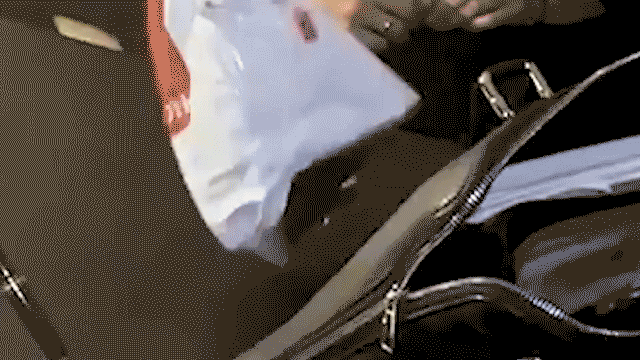ASUNCION, Paraguay – Paraguay is poised to elect as its new president a conservative candidate from the party that backed strongman Alfredo Stroessner during 35 years of iron rule, returning the executive branch to the wealthy interests that have traditionally dominated this poor South American nation despite the election of a leftist ex-bishop in 2008.
Sunday's vote is also an important milestone in Paraguay's attempt to regain the international acceptance it lost when neighboring nations objected to the fast-track removal of President Fernando Lugo. The expedited impeachment of Lugo last year conformed to Paraguay's constitution but was criticized by its neighbors as an "institutional coup" that threatened democracies around the region.
Regional blocs such as Mercosur suspended Paraguay's membership following Lugo's ouster, but all signs indicate that Paraguay's neighbors will re-engage the country after the election to replace Federico Franco, who served out Lugo's term and is not eligible to seek a new one.
Most polls indicate that tobacco magnate and soccer executive Horacio Cartes of the Colorado Party, which held power for 61 years before losing to Lugo at the polls, will win handily over his chief rival, Sen. Efrain Alegre of Franco's Liberal Party.
A handful of candidates trail them, including Anibal Carrillo of the leftist Guasu Front coalition led by Lugo, who is seeking to return to politics as a senator.
A presidential candidate can be declared winner with a plurality, and there is no runoff.
Some likened the vote to the 2009 presidential election in Honduras that gave other nations reason to re-embrace the Central American country five months after President Manuel Zelaya was grabbed by soldiers while still in his pajamas and flown to Costa Rica.
"The election in Honduras ultimately was important," said Gregory Weeks, a political scientist specializing in Latin America at the University of North Carolina at Charlotte. "It was contested and there might have been controversy, but what it did was it got the country sufficiently past the crisis to allow it to be accepted by all the rest of the region again."
Whoever wins in Paraguay will have to deal with problems that have been endemic for decades in this landlocked nation of about 6.2 million people, most notably the yawning gulf between the haves and have-nots.
Paraguay is South America's No. 3 producer of soy, corn and sunflower, but about 1 percent of the population controls 77 percent of the arable land. More than half of the people live in poverty, according to U.N. statistics. Paraguay's census bureau puts the poverty figure lower, at around 39 percent.
Both leading candidates have said they will try to change that.
"I have a project to modernize the country with infrastructure works and especially to give work to the people," Alegre said in a recent interview with The Associated Press.
Cartes declined an interview request but said in a debate that foreign investment for job creation would be a key part of his anti-poverty platform.
Cartes also touched off controversy on the campaign trail by comparing gays to "monkeys." He told Chaco Boreal radio this week that he opposes gay marriage because of his Roman Catholic faith, and joked that if his son ever told him he wanted to wed another man, he would shoot himself in the private parts.
Alegre has also said he is against gay marriage.
The impoverished majority had high hopes that Lugo, a bearded, sandal-wearing former "bishop of the poor," might ease their pain when they put him into office in 2008, but he was unable to make much headway against opposition in Congress and elsewhere in government.
"Once in power, Lugo gave positions at ministries to progressive or leftist parties," analyst Alfredo Boccia said. "But that ... was just about participation and not about power, because the conservative interests like the big soy and cattle ranches, and the thousands of landless farmers, remain intact."
A deadly clash over land ultimately led to Lugo's downfall, with opponents and former allies alike quickly voting to oust him last June for "poor job performance" after a Senate trial lasting a few hours.
With the Colorado party, which was allied with Stroessner, once again ascendant, Weeks said Paraguay's power class is looking to shore up its tight control.
"It was very clear that Paraguay's brush with a leftist president shook up the establishment to a point where it's trying to regain equilibrium," Weeks said. "I think you're seeing elites kind of coming back together to prevent that from happening again."
The new president takes office Aug. 15.
___
Orsi reported from Havana. Follow him on Twitter at www.twitter.com/Peter_Orsi








































